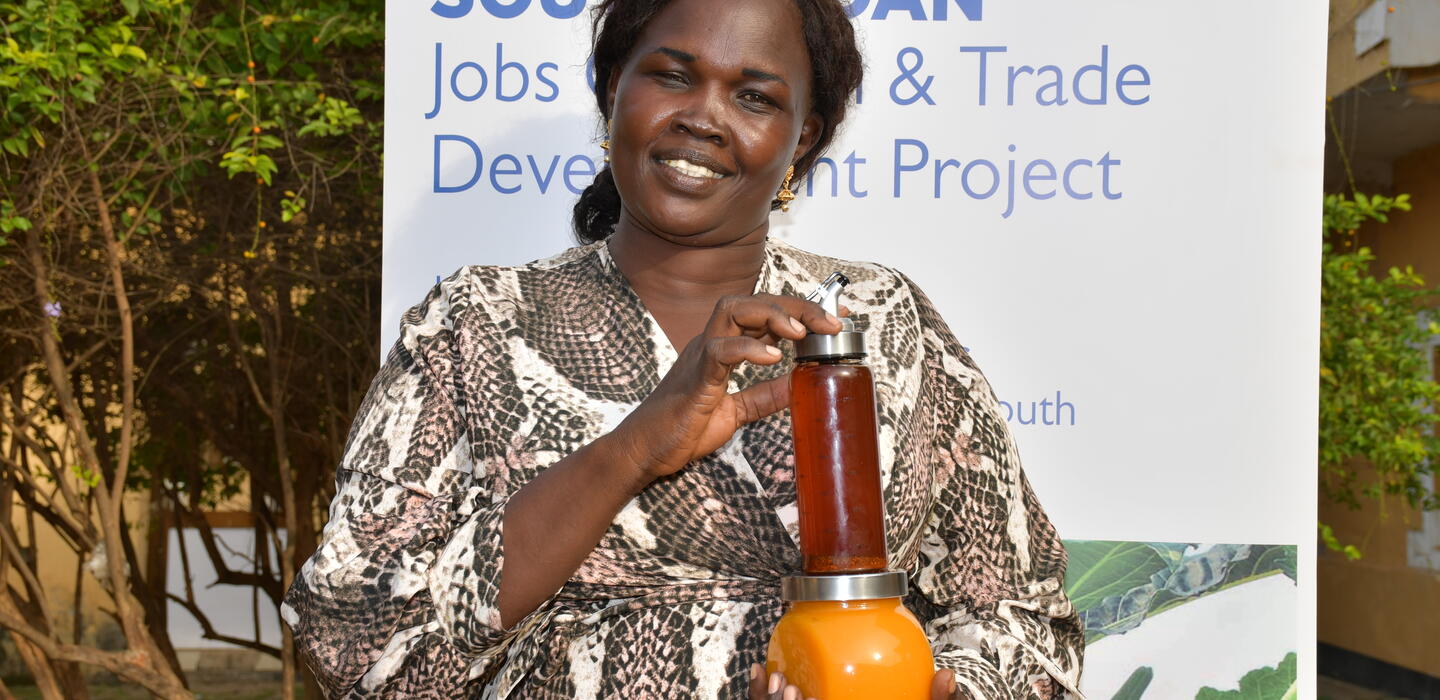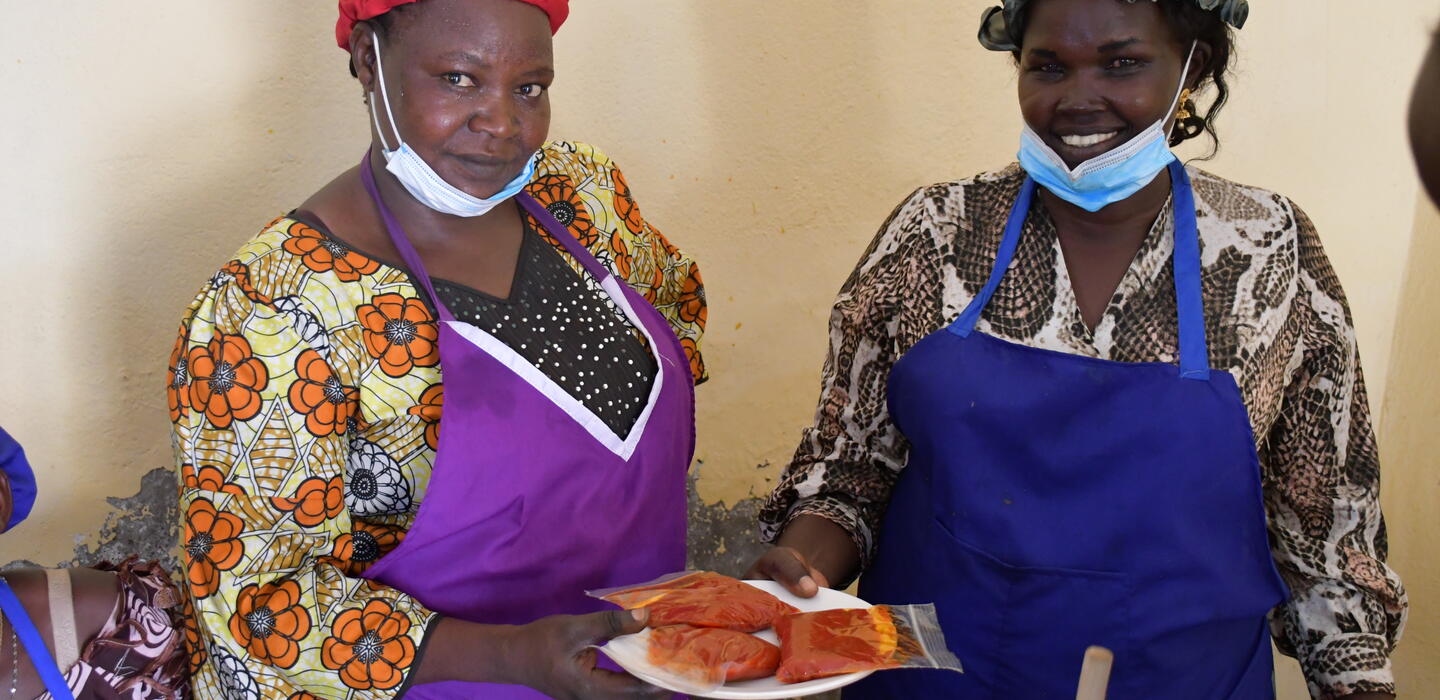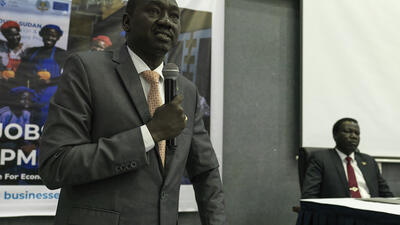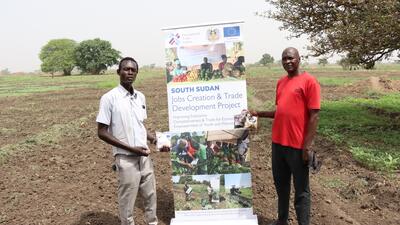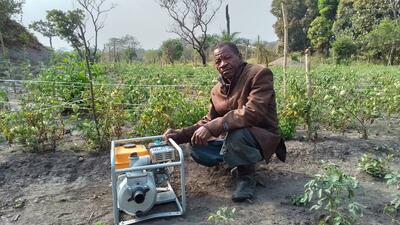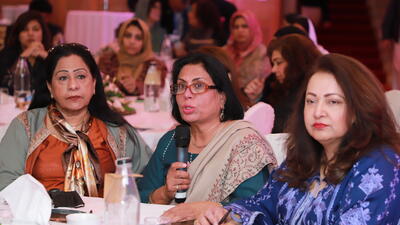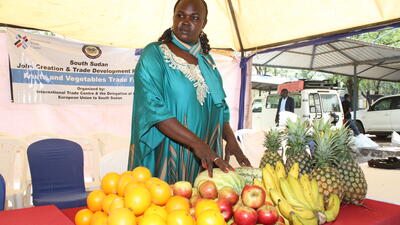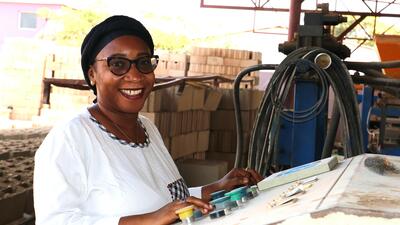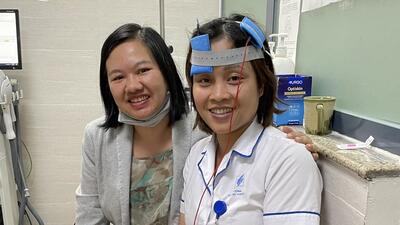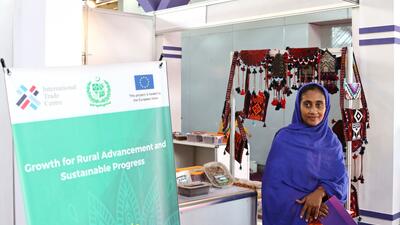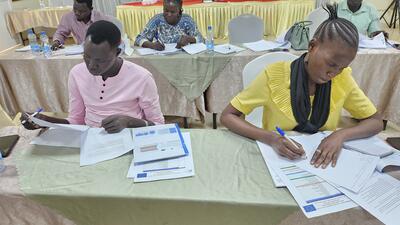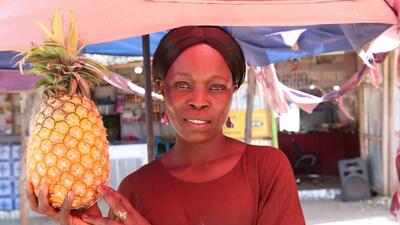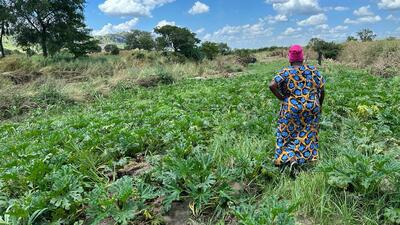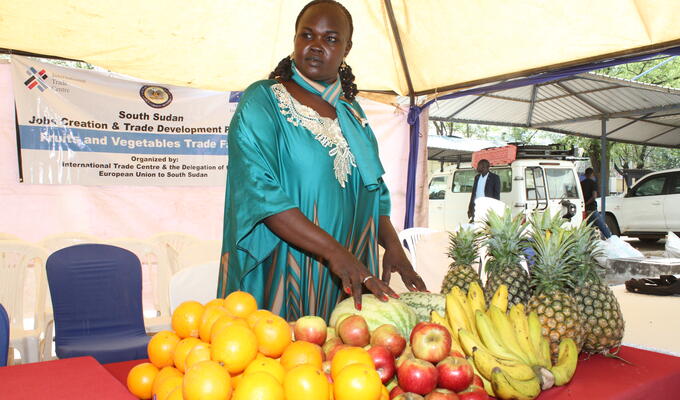
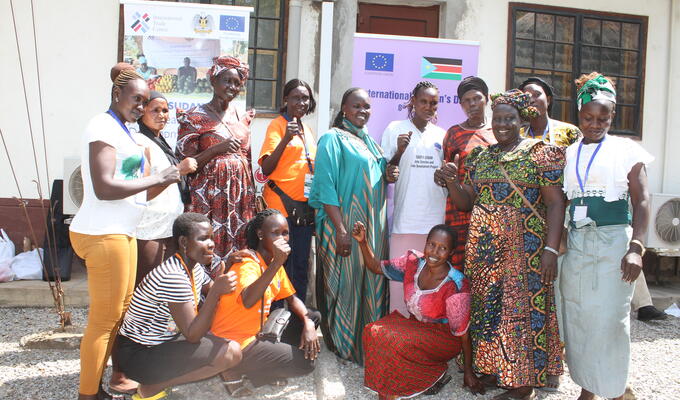
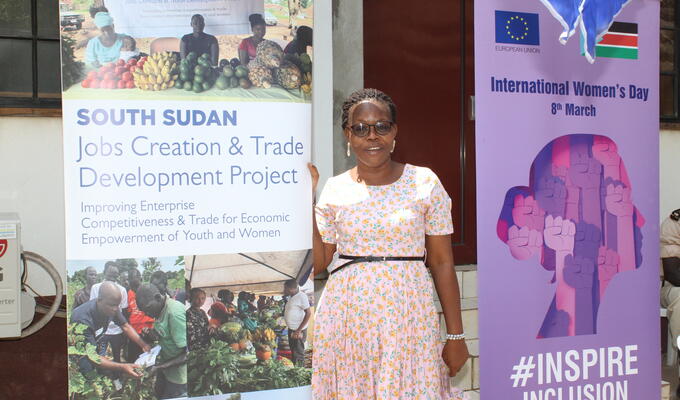
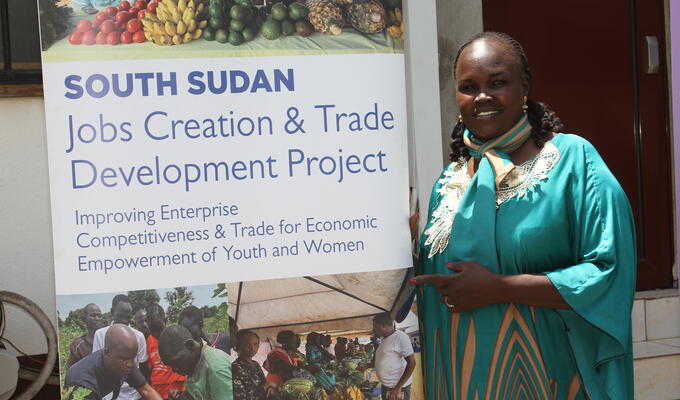
Woman from South Sudan successfully grows her food processing business
On International Women’s Day 2024, the European Union (EU) and the International Trade Centre (ITC) organized a mini fruit and vegetable trade fair at the EU compound in Juba. Under the theme of Invest in Women: Accelerate Progress, the fair focused on inspiring inclusion and empowering women from diverse backgrounds.
Abuk Deng, a 52-year-old entrepreneur and mother of seven, joined the trade fair as a beneficiary of ITC’s South Sudan Jobs Creation and Trade Development Project. In 2015, she founded Abuk Enterprise Limited to supply food items such as peanut butter, dried vegetables, and processed fruits. Her business nearly fell apart during the country’s 2016 conflict, but here she tells how she persevered so her family could thrive.
Question: What are your challenges as a woman in business?
Answer: Society sometimes expects too much from me. So many responsibilities are piled on me, it’s difficult to expand my business. Whatever little money that I generate is often taken up by family needs. And it’s always a challenge to meet the demand of customers. This is one of the reasons businesses run by most women don’t flourish. Many can’t withstand the pressure, or produce enough to meet the demand from big buyers. In addition, the cost of production is high. Packaging containers, branding and other supplies come with significant costs that are always hard to meet. And finally, the community doesn’t give enough moral, social, and economic support. Sometimes, we try to work hard but due to lack of support, our businesses break down.
Question: What do you need to improve your business?
Answer: I want to produce and process in big quantities, and to sell good quality products. That’s the way to meet consumer demand and bring a good image to my business. That means I need processing machines and equipment. I also need more training on food processing so I can make high-quality products. And as the world is growing rapidly towards technology and digital marketing, it would be great to get training in these areas. Then I can market my business with less expense.
Question: What are some of your successes?
Answer: Through my small business, my daughter was able to graduate from one of the best universities in Uganda (Makerere University). All my other children have access to good education, good health care, and live a good life. I have learned how to promote my business, improve my packaging and branding, and improve the quality of products through the ITC project. Through the processing activities, I can connect more easily with potential buyers. That’s greatly increased my production.
Question: What is your message to fellow women?
Answer: My request to the women of South Sudan is to not give up despite the challenges. Let’s all join hands regardless of our differences and stand together to end all the injustice happening in this country. Let’s fight poverty to ensure a better life for our children. It is up to us to bring the positive change that we all yearn for. I am very thankful to ITC for supporting the women of South Sudan, and hope that this continues in the future as well.
About the Project
The International Trade Centre’s South Sudan Jobs Creation and Trade Development project aims to increase the competitiveness of micro, small and medium-sized enterprises (MSMEs) and employment opportunities for the South Sudanese population engaged in the fruit and vegetable subsector.
The European Union-funded project contributes to addressing the value addition, competitiveness, job creation and trade development challenges of South Sudan. Specifically, the interventions of the project are expected to improve productive capacities and compliance to standards for MSMEs, increase market linkages for MSMEs and enhance employability and entrepreneurship capacity for the South Sudanese labour force, focussing on youth and women.




